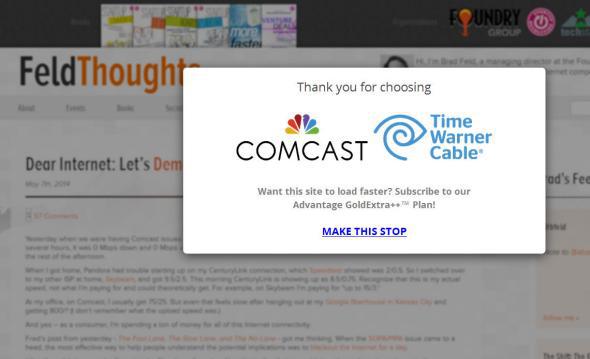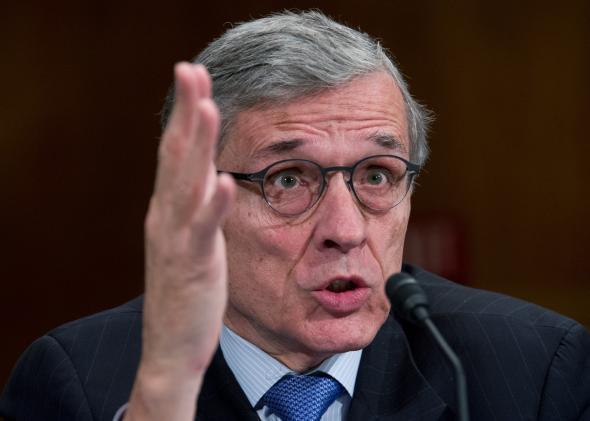One thing the Federal Communications Commission chairman, Tom Wheeler, seems to have overlooked in his widely loathed proposal for a net neutrality overhaul is that if the Internet has a fast lane, it must, necessarily, have a slow lane.
What would life be like in the slow lane—in a “pay to play” world where cable broadband providers can charge companies like Netflix a toll if they want reliable and swift streaming speeds? Well, not to exaggerate, but remember when you tried to use Neopets in 1999 on a dial-up connection?
Tech companies and activists are worried that the creation of two Internets: one quick and reliable for those that can afford it, and the other, of a lesser quality, would seriously undermine the Internet as an open medium for limitless entrepreneurship and communication.
And while we’re not at SOPA and PIPA protest levels by any means, people are coming up with creative ways to voice their disapproval. Neocities, a website-creation company, is delivering its site to FCC IP addresses at achingly slow 28.8 kbps modem speeds. Tech investor Brad Feld can give you an even better taste (at the speed of the breaking up the Gondwana supercontinent) of what this new Internet could become. On his website, Feld demonstrates exactly what those low speeds could look like—you can experience it for yourself here.

Screenshot from Feld.com
But why expect everyone to visit his site to get the point? Feld suggests that a day of “Demoing the Slow Lane” would really show the public what’s at stake. As he says, “[l]et the world see ‘Waiting for’, ’Connecting’, and ‘Buffering’ ” for a day, and they will be compelled to take action.
If you like celebrities with your protests, then the pro-strong net neutrality camp has those, too. On Tuesday, Pearl Jam’s Eddie Vedder and Portlandia’s Fred Armisen, along with many others, sent a letter to Wheeler to express their concerns. Per the letter, allowing ISPs greater control “shifts power away from individual artists and creators and interferes with freedom of speech and expression.” There are even Occupy-style encampments, petitions, and protests outside the FCC planned for May 15, when the FCC commissioners are scheduled to vote on Wheeler’s proposal.
Now that he’s also facing criticism from within the FCC and from the Hill, rumor has it that Wheeler has updated his proposed regulations to allow for greater oversight of broadband companies by the FCC to prevent discriminatory practices, and he wrote an open letter to assure content providers that he, too, supports an open internet. But that’s unlikely to placate Silicon Valley, whose denizens seem to, for the most part, support a pure version of net neutrality—equal treatment for all online traffic. That version that would likely require the FCC to go back to the drawing board and reclassify the Internet as a public utility, akin to telephone services.
As David Carr pointed out Monday in the New York Times, the heavyweight companies that neutered SOPA and PIPA with wide-ranging online protests are mobilizing to fight Wheeler’s revision of net neutrality. Last week, companies like Amazon, Google, and Twitter sent a letter to the FCC to protest the plan. Between that letter, the celebrity stance, and Neocities’ and Feld’s stunts, we may be experiencing the opening salvos of some online civic disobedience.
What might that look like? Feld and others are suggesting that the revolt go bigger. What would happen if Google throttled all .gov IP addresses to dial-up speeds in protest? Now that would be interesting.
